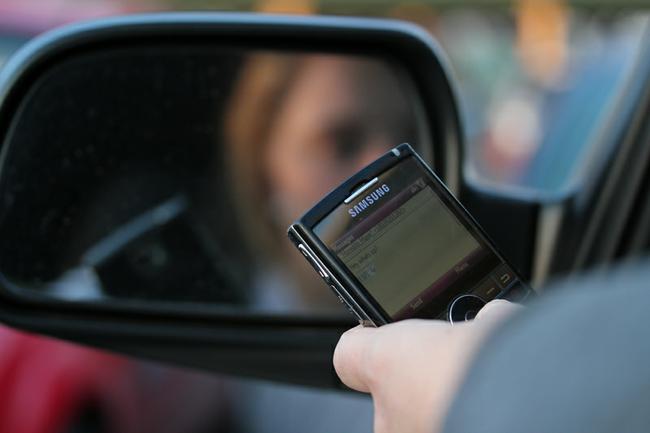A bill aiming to make texting while driving illegal for everyone, regardless of age, received support from numerous organizations in a hearing Wednesday morning, said Sen. Robin Wright-Jones, D-St. Louis.
Supporters who testified for the bill, SB 567, included the Missouri Trucking Association, Missouri State Highway Patrol and the Missouri State Medical Association. No one testified against the bill.
Missouri’s current law states that people 21 years of age or younger may not send text messages while operating a motor vehicle. The new bill would make the law universal for all ages. The bill also states that drivers cannot be stopped “solely to determine compliance with the state text messaging ban.”
Traffic Sgt. Curtis Perkins said under the current law, an officer can pull a driver over for texting alone without any other violation, as long as the officer has reason to believe the driver is younger than 21.
“The benefit is that it is not safe to be texting, no matter how old you are,” Perkins said. “It’s still not safe, no matter who you are, to text and drive.”
Wright-Jones said she sponsored this bill with the intention of making roads safer and keeping Missouri’s insurance rates from increasing.
Crashes affect Missouri’s insurance rates more than crashes in many other states because Missouri is one of the few states without an insurance cap, Wright-Jones said.
According to a study published by 4autoinsurancequote.org, insurance rates are rising because of texting and driving. Tickets issued because of texting cause a higher monthly insurance premium, as insurers view the people texting as at risk for an accident in the future.
“I filed the bill because, being a senator, I’m on the road quite a bit between St. Louis and Jefferson City,” Wright-Jones said. “I have been doing that for 10 years now. I’ve seen a lot of different things people have been doing behind the wheel. Your eyes cannot do two things at once. You cannot text and watch the road, and it’s important that we watch the road.”
Freshman Carley Sears said she thinks that texting and driving is detrimental to people of all ages.
“If they think it is a big enough deal for kids under 21 for it to be passed, I think adults are just as bad about it,” Sears said. “If they’re going to say kids under 21 shouldn’t, then they should say everyone shouldn’t.”
The next step for the bill is to be voted on at an executive session. If passed, the bill would go into effect Aug. 28.
As of this January, 35 states have a law prohibiting texting while driving for all drivers, according to the Insurance Institute for Highway Safety website. The website also shows that seven states have a partial texting and driving ban and eight states have no texting and driving ban at all.
“We need to keep our school children safe in and off the bus,” Wright-Jones said. “We need to keep all of our drivers on the road safe, and we need to put some prudent limits around what we do behind the wheel.”








